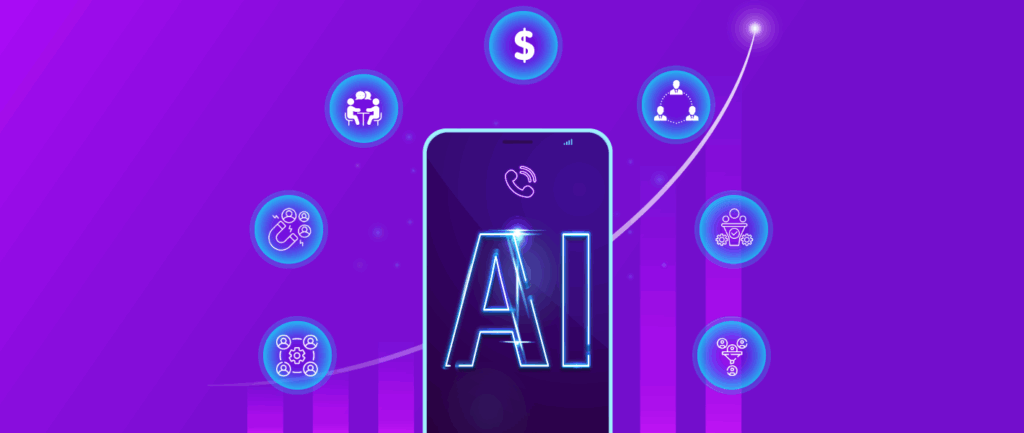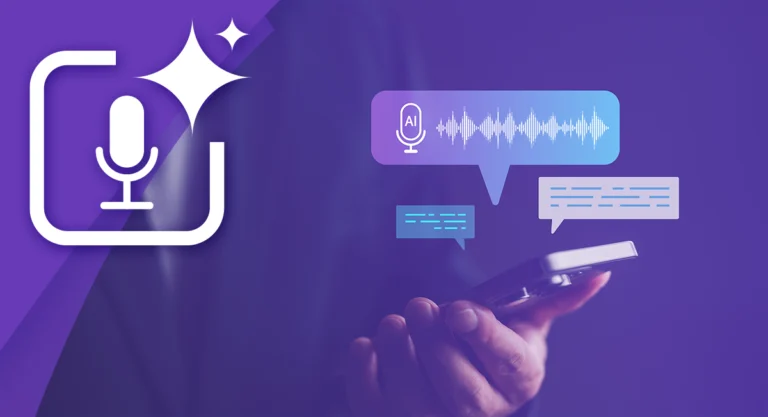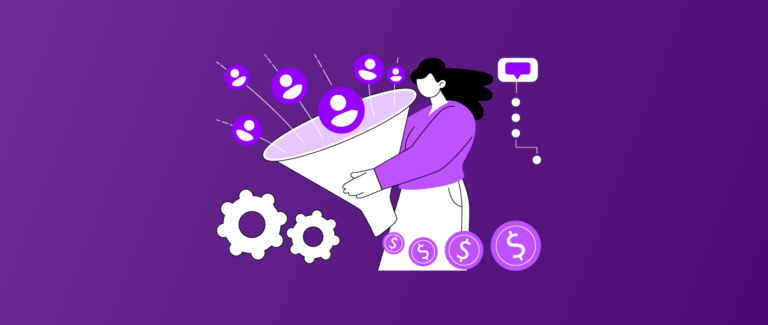AI might just be the upgrade your pitch has been waiting for.
Not too long ago, cold calling was all grit. You build lists, pick up the phone, and dial. Again, and again. Success came from volume and persistence.
And for decades, that’s how outbound worked.
However, that’s not how sales departments of fast-moving companies are operating anymore.
It is because today’s buyers have more information than ever, more channels to screen calls, and less patience for generic outreach. They expect relevance, context, and respect for their time.
Yet the phone still works. People still buy through conversations.
What’s changing is how those conversations start and who’s driving them.
The difference is agentic AI. AI cold calling is transforming how teams connect by delivering the right message, to the right prospect, at the right time.
Across industries, sales teams are rethinking the traditional cold call. Not replacing, but refining. Making it more targeted. More intelligent. More human.
In addition to automating outreach, AI is changing how decision makers think outbound strategies. And for teams willing to adapt, it’s unlocking serious upside.
In fact, research by Gartner states that by 2027, AI will be the starting point for 95% of seller research workflows.
What is AI cold calling?
Forget the robotic scripts and one-size-fits-all calls of the past.
AI cold calling applies conversational AI, natural language understanding (NLU), and real-time analytics to handle the initiation, routing, and follow-up of sales calls in a smarter, more targeted way.
It uses machine learning to identify patterns in buyer behavior. It understands tone, pace, and sentiment. It can qualify a lead based on verbal cues. It can adjust its messaging mid-conversation.
And yes, it can schedule follow-ups, sync data with your CRM, and even flag coaching opportunities for managers.
In practice, AI cold calling includes:
- AI call agents: Autonomous, voice-based bots that initiate outbound calls, deliver context-aware pitches, and ask qualifying questions.
- Conversational intelligence: Real-time analysis of live calls to guide reps, surface talk tracks, or identify buyer objections.
- Intent detection & scoring: AI determines how interested the user is based on call behavior, keywords, and tone.
- Workflow automation: AI integrates with tools like Salesforce, HubSpot, or Outreach to trigger follow-ups, email sequences, or meeting bookings.

For example:
Instead of asking your reps to cold call 100 people a day and maybe qualify 10, you deploy AI to call all 100, and deliver the 10 most relevant leads straight to your team along with their possible requirements.
Here, the point isn’t to replace human reps. It’s to equip them, so they’re walking into important calls with context, confidence, and a better shot at conversion.
Organizations are already using AI cold calling to test new markets. Enterprise sales teams are accelerating pipeline without burning out SDRs. And coaching platforms are integrating agentic AI to optimize real-time conversations.
AI is making cold calling feel less cold, and more calculated.
Role of AI in cold calling
AI is making every part of the cold calling process smarter.
From whom you target to how you follow up, AI now plays an active role at every stage of the outbound motion. Here’s what that looks like:
- Intelligent call initiation: AI agents are designed to engage. They launch calls at optimal times, open with context-aware messaging, and adapt their approach based on the prospect’s responses, tone, and pace.
- Real conversations, in real time: These conversations aren’t scripts on repeat. AI listens, understands, and responds live. It picks up on objections, clarifies questions, and adjusts messaging on the fly.
- Lead qualification: AI asks qualifying questions, picks up on hesitation or enthusiasm, and scores leads based on actual conversation cues, and not just keywords. So, reps get a warm handoff, not a cold list.
- Seamless handoff to humans: When nuance is needed, AI passes the conversation, and all the context, to a human rep in real time. No inconvenient transitions. No lost momentum.
- Instant CRM sync: Everything gets logged automatically. Call summaries, sentiment scores, objections, and next steps are pushed straight into your CRM. No manual data entry. No missed updates.
- Actionable insights : AI learns from the calls. It highlights what messaging lands, where deals stall, and which reps are performing best. That means faster feedback loops, smarter coaching, and more consistent execution.
How is AI cold calling different from traditional automation?
AI cold calling is designed to have real conversations, as compared to traditional automation. Here’s how it stacks up against old-school outbound tools:
Capability | AI Cold Calling | IVR / Traditional Automation |
Voice Interaction | Natural, adaptive, contextual | Pre-recorded, rigid, one-way |
Dynamic Scripting | Adjusts in real time to responses | Fixed messages |
Lead Qualification | Gathers data, responds to questions | None |
CRM Integration | Real-time syncing with CRMs like Salesforce, HubSpot | Usually requires manual updates |
Follow-up Triggers | Can schedule emails, SMS, or callbacks | No |
Sentiment Analysis | Detects tone, energy, intent | None |
Hand-off to Human Reps | Seamless transition when human needed | No handoff |
Compliance & Personalization | GDPR/TCPA-aware with tailored messaging | Often non-compliant, generic |
In short: AI cold calling is designed for engagement. IVR calls are built for interruption.
Benefits of AI in cold calling
- Intelligent lead qualification
In traditional cold calling, your reps spend most of their time chasing leads who were never likely to convert. AI changes this.
Through real-time natural language processing (NLP) and sentiment analysis, AI agents:- Ask qualifying questions that adapt based on the prospect’s responses.
- Assess tone, hesitation, and confidence to gauge genuine interest.
- Score leads based on intent signals, not just superficial keywords.
Instead of wasting your team’s energy on disinterested leads, AI ensures that reps engage only after a lead is warmed and scored. It converts your time spent into revenue earned.
- Real-time conversation analysis
Every call consists of valuable insights. But in traditional setups, those insights live and die in the memory of your sales reps. This is because there’s no reliable system in place to capture, organize, and share them across the team.
AI records, transcribes, and analyzes every conversation, and give insight into:- Buyer objections
- Winning talk tracks
- Emotional cues (confusion, enthusiasm, hesitation)
It also generates reports for managers, which pinpoints training gaps, underperforming scripts, or high-performing reps.
This replaces the “guess and adjust” coaching model with data-backed sales enablement, leading to smarter reps and tighter sales cycles. - Automated follow-up planning
Cold leads don’t stay cold forever. The timing of a follow-up can make or break the deal.
Here’s how AI agents efficiently contribute to relationship management:- Automatically schedule callbacks or send follow-up emails/SMS based on prospect behavior.
- Sync instantly with your CRM to log notes, next steps, and decision-maker roles.
- Use analytics to prioritize follow-ups most likely to convert.
This creates a pipeline without any lead slipping through. This converts “maybe later” into measurable pipeline opportunities.
- Scalable outreach
Expanding into a new region or industry used to mean hiring a team, training them, and hoping your approach worked.
But, with AI call agents, you can:- Run several calls concurrently, in multiple time zones and languages.
- Rapidly test variations of scripts, offers, and pitches.
- Provide immediate data on interest level, objections, and buyer personas.
This makes go-to-market strategy agile and evidence-based, not instinctual.
You get market signals in days, not quarters. This leads to results in faster decision-making, sharper messaging, and a team that’s always aligned with what customers actually care about. - Always-on CRM sync
Sales pipelines live or die by the accuracy of your CRM. And reps don’t always update fields in the heat of the day.
AI ensures:- Real-time syncing of every call, sentiment score, and lead status.
- Auto-tagging of objections, buyer stage, and follow-up needs.
- Zero manual data entry. Zero human error.
Accurate data = better forecasting.
Better forecasting = better boardroom decisions.
This gives you cleaner, actionable data. Compliance built-in
Legacy robocalls risk regulatory penalties and brand damage. AI, when properly configured, doesn’t.
It can:
- Be pre-programmed with TCPA, GDPR, and DNC logic.
- Log consent and delivery metrics for audit trails.
You stay compliant, avoid fines, and maintain consumer trust.
- Personalization
AI doesn’t mean robotic. It is context-aware and adapts its script to specific circumstances.
Today’s conversational AI can:- Use prospect data (industry, role, past behavior) to tailor intros and objections.
- Adapt tone, pause for emphasis, and mirror sentiment.
- Escalate to a human when nuance is needed.
Personalization drives response rates. You get the efficiency of automation without losing the impact of a message that feels one-to-one.
- Continuous Learning
Every AI call improves the next.
Your AI agents:- Learn which scripts resonate.
- Adjust based on outcomes, times of day, or prospect profile.
- Feed insights back into the system for continuous optimization.
With AI agents, you set up a sales system that constantly learns, adapts, and performs better over time.
- Strategic Sales Enablement
Most sales organizations react, AI-equipped organizations predict.
- AI flags friction in buyer journeys.
- It shows what’s driving real engagement.
- It creates consistency in messaging and approach, which is critical as your team grows.
AI is competitive differentiator that empowers companies to scale predictably and sell intelligently.

Why is this important for the C-Suite?
AI cold calling is a strategic upgrade with clear executive-level value. Here’s how it aligns with core leadership priorities:
Executive Concern | AI Cold Calling Impact |
Revenue Growth | AI filters unqualified leads early, letting reps focus on high-potential conversations, accelerating pipeline. |
Cost Efficiency | Reduces spend on labor-intensive prospecting while increasing the lead-to-opportunity ratio. |
Scalability | AI agents scale instantly with demand. No recruitment, onboarding, or ramp-up time required. |
Sales Team Productivity | Reps spend less time dialing and more time selling, leading to higher morale and lower turnover. |
Data-Driven Strategy | Real-time analytics and sentiment data power smarter decisions and more effective coaching. |
Compliance & Risk | Built-in safeguards for TCPA/GDPR minimize legal exposure. |
Innovation & Competitiveness | Adopting AI demonstrates tech-forward thinking. This helps attract top talent and gain market edge. |
Closing the loop
Today’s buyers expect more than persistence; they demand relevance, respect, and understanding.
And AI is the fundamental shift that’s re-building how teams connect with prospects. Turning data into real insights that matter. Helping sales teams move from selling to advising.
The future belongs to those who treat AI as a teammate, and not a replacement.
So, here’s the question:
If AI is the future of cold calling, what legacy will you create in a world driven by intelligent sales?
Think about it!





